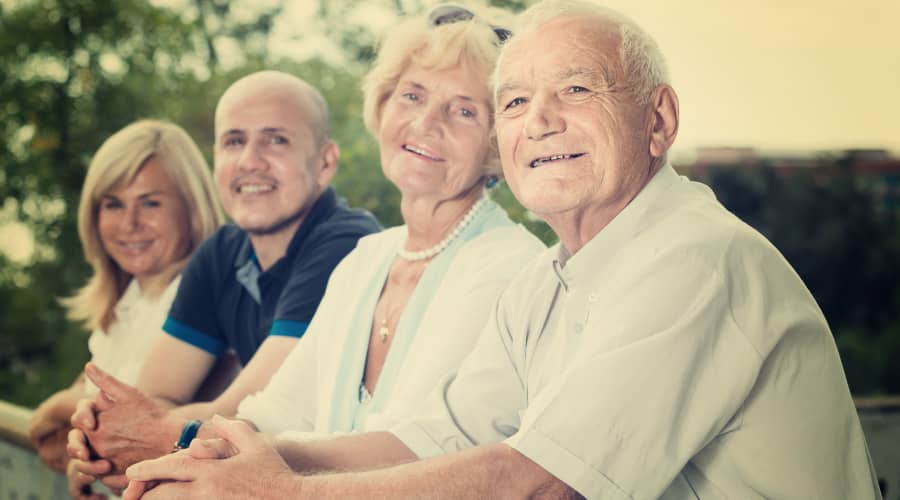
If you’re thinking about donating your body to science, there are powerful arguments to be made.
Nevada’s population is aging rapidly. By 2030, nearly one in five Nevadans will be over age 65. Las Vegas, in particular, is also seeing a significant increase in retirees and older adults relocating to the area. This demands more and better services when it comes to healthcare. Yet, there’s already a shortage of physicians. The Association of American Medical Colleges (AAMC) projects a physician shortage of up to 86,000 by 2036.
Training the next generation of healthcare providers, researching aging and related diseases, and developing new treatments requires body donations, and there’s a severe shortage there, too.
If you are considering becoming a body donor, you need to understand Nevada cremation regulations and body donation requirements in Las Vegas.
Nevada Cremation Regulations
Cremation in Nevada is regulated by state law to ensure dignity and accountability. The Nevada Revised Statutes (NRS) Chapter 451 outlines the requirements, including legal consent and authorization.
- Authorization: Cremation cannot proceed without written authorization from the next of kin or legal representative.
- Licensing: Crematoriums must be licensed by the Nevada Funeral and Cemetery Services board.
- Procedures: Bodies must be positively identified and may not be cremated simultaneously with another body.
- Disposition of remains: Remains may be transported and disposed of by the family or crematorium.
In addition, a cremation permit must be issued by the local health district or registrar, once the death certificate has been filed, before cremation can occur. These Nevada regulations also govern who can make an anatomical gift, including a spouse, adult children, or others.
Body Donation Requirements in Las Vegas
Families considering donation should also know how the process works and the body donation requirements in Las Vegas. The process is surprisingly easier than most people realize. You can pre-register online, or your estate can make arrangements at the time of death.
Who Qualifies for Free Cremation Through Body Donation in Nevada?
United Tissue Network (UTN) accepts most donors as long as they are adults 18 or older, with no upper age limit. Donors must also be free of communicable diseases, such as hepatitis or HIV/AIDS, to keep medical professionals safe.
Once you or a loved one is accepted into the body donation program, you will receive a Digital Donor Certificate.
What Happens After Death?
At the time of the body donor’s death, UTN will coordinate with the family, hospital, hospice center, or funeral home to manage the arrangements. This includes transportation and placement at a medical research or educational facility, free cremation after research is completed, and the return of the cremated remains to the family if they desire.
Ethical Guidelines for Body Donation
United Tissue Network operates under strict ethical guidelines and is accredited by the American Association of Tissue Banks (AATB). This accreditation ensures that every donor and their famil are treated with the utmost dignity and respect throughout the process.
Comparing Traditional Cremation and Body Donation
While you want to pay respect to your loved ones and honor them, cost is often a concern when it comes to end-of-life arrangements. Let’s compare how direct cremation, cremation with memorial services, traditional funeral and cremation, and whole-body donation compare.
| Option | Average Cost | Emotional & Legacy Impact |
| DIRECT CREMATION | $1,000–$2,000 | Offers a practical and streamlined process for cremation without memorial services. |
| CREMATION WITH MEMORIAL Cremation | $2,000–$4,000 | Offers a formal memorial service or celebration of life along with cremation. |
| TRDAITIONAL FUNERAL AND CREMATION | $4,000–$6,000+ | Provides a familiar structure for mourning with services and rituals many families value. |
| Body Donation | No cost | Removes all cremation expenses while creating a lasting legacy through education and research. |
Why This Matters for Nevada Families
Nevada has one of the highest cremation rates in the nation, reflecting a strong shift toward alternatives to burial. High costs make families seek dignified, affordable options, and body donation is increasingly recognized as a compassionate choice.
Beyond cost savings, whole body donations directly support medical education and research in Nevada and across the country. Donors help train future doctors and contribute to discoveries that improve healthcare for generations to come. Here are just a few of the clinical studies and research programs going on in Nevada:
- Brain and neurological health: Studying neurodegenerative diseases, traumatic brain injuries, and cognitive aging.
- Cardiovascular health: Understanding and treating heart disease, arrhythmias, and hypertension.
- Cancer: Studying cancer and holding clinical trials to develop new therapies.
- Infectious diseases and immunology: Developing rapid diagnostics and understanding immune system responses to diseases.
- Genomics and genetics: Exploring the relationship between genes and disease, and the search for biomarkers.
Such research and training for future medical professionals are crucial for caring for Nevada residents and finding more effective treatments for patients everywhere.
If you are exploring options for yourself or a loved one, consider registering with United Tissue Network to become a whole body donor. Through donation, you relieve your family of financial stress and contribute to the advancement of medical science.
